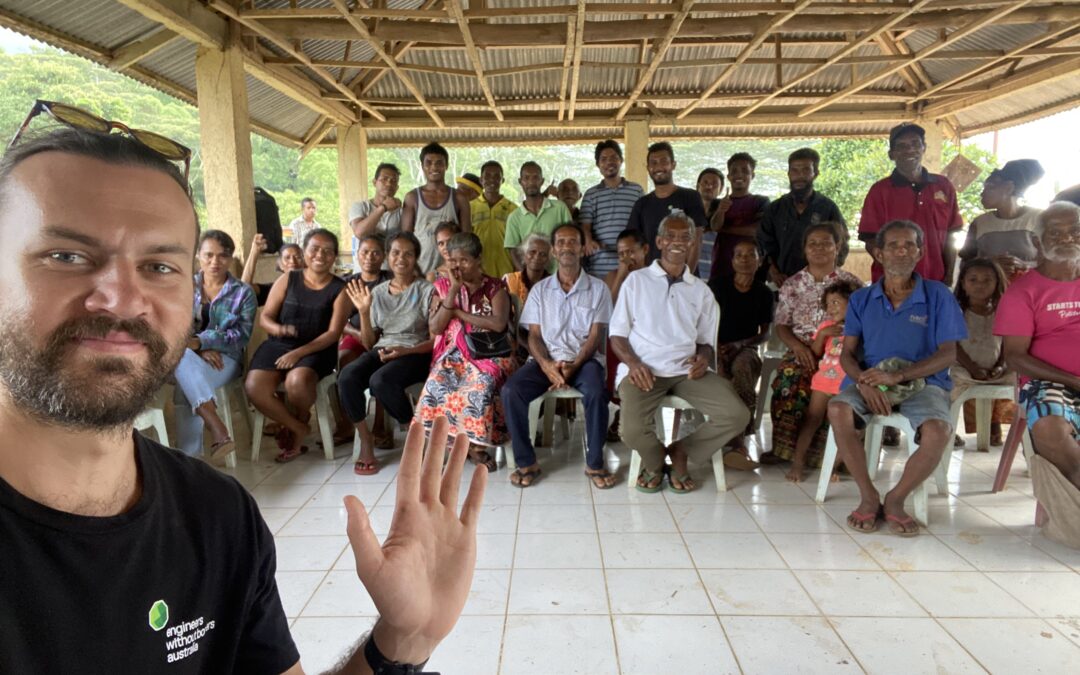Feature image: EWB Technology Development Lead Mitch Horrocks at a participatory design workshop in Darlau, Timor-Leste in May 2022.
Over 3,500 people have directly benefited from new, appropriate technology that EWB has been involved in implementing in Cambodia, Timor-Leste and Vanuatu during the past year. Almost 2000 community members have actively participated and contributed to the development of these technologies. These projects ranged from vertical gardens in Vanuatu, to ceramic water filters in schools in rural Timor-Leste, and accessible hand-washing stations for medical centres in Cambodia.
But, how did we know what challenges those communities were facing to begin with?
The answer – Human-Centred Design – is a critical component in our Technology Development Approach, and a process which is often underdone when developing engineering solutions.
Participatory design with community
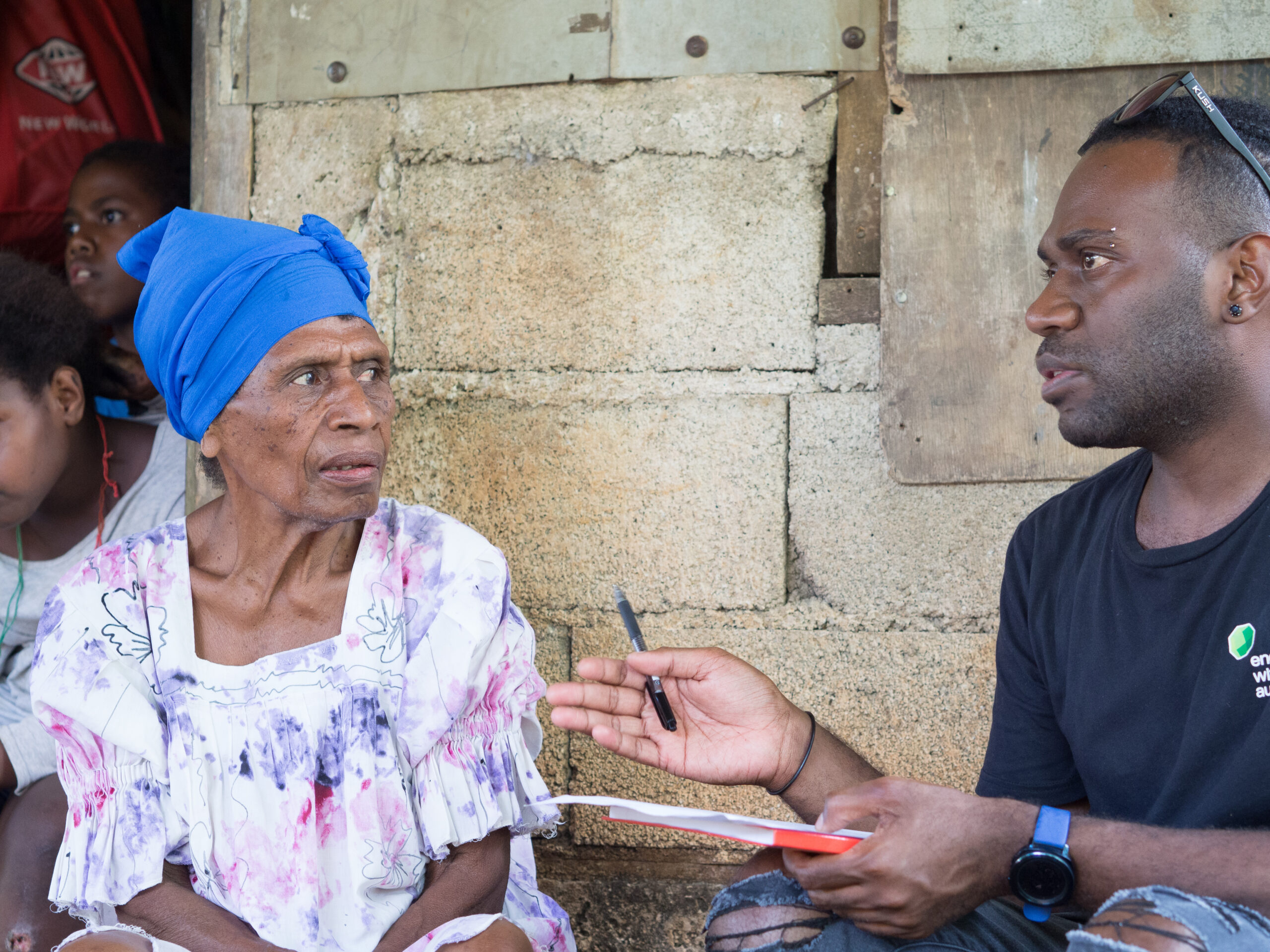
Technology Development Coordinator, Cedric Paniel speaking with a participant during a workshop held in Kokoriko, Vanuatu.
One of the ways EWB uses human-centred design to identify problems is through participatory design workshops. The purpose of these workshops is to explore problems in the community that could be solved through the introduction of an innovative product or technology. Facilitated over the course of a week, the EWB team works closely with a community – who are often identified by our local partner – to discuss what’s working well and what’s not.
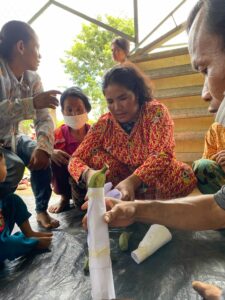
Participants in Mondulkiri province, Cambodia, taking part in a banana building icebreaker at the start of day one. In teams, participants have 10 minutes to build the highest, free-standing structure using four bananas, three pieces of paper and sticky tape.
Day #1 Learning: On day one, the EWB team outlines the specific goals of the workshop and shares the EWB methodology. The team then facilitates group discussions so they can learn specific aspects of that community – including their history, their challenges and their successes.
Clearly communicating the goals for the three days and setting expectations on what the workshops seek to achieve is a key component in developing the trust of the participants, and ensuring each participant has the opportunity to contribute to the goals of the workshop.
Day #2 Listening: The focus of day two is to listen. Through one hour interviews with community members in their homes, the team delves deeper into the causes behind each of the issues that have been identified.
One of the tools used in these individual discussions is the ‘my perfect life’ exercise, where participants are asked to describe what their perfect life would look like. To design appropriate, impactful and innovative solutions, the team must immerse themselves in the lives of the end-user through exercises such as this.
Day #3 Challenging: On the last day of the workshop, the team holds small focus groups. To ensure the workshop is a safe space for open discussion, participants are split into groups by gender to discuss gender-specific issues experienced by the community.
Following this, the EWB team shares their learnings from the week and provides an opportunity for the community to confirm or reframe their learnings. The team then closes the workshop by indicating how the team will review what was discussed, and the next steps that will be taken.
From sticky notes to the whiteboard
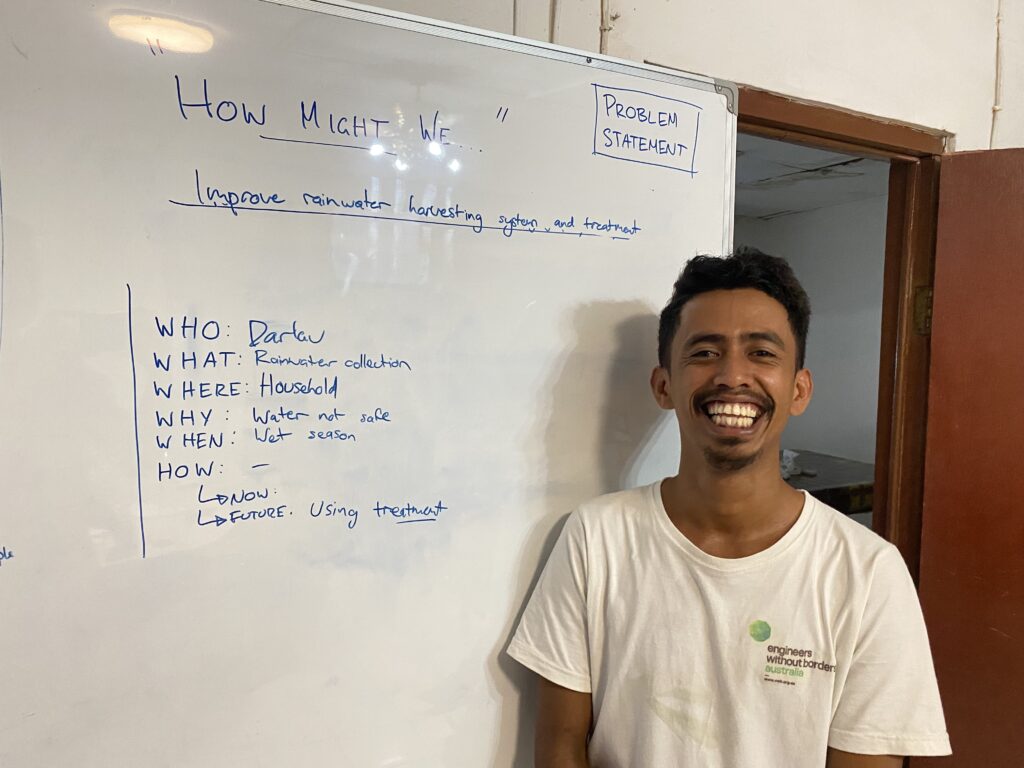
EWB Australia volunteer Jose Reis presenting his problem statements to the team at the EWB office in Dili, Timor-Leste following a week-long participatory design workshop.
After this collaboration with community, the EWB team takes their learnings and notes back to the office to review what they’ve learnt. Using the framing question “How might we…?”, the team creates problem statements for each identified issue ahead of discussing potential solutions.
Some of the problem statements identified by the team following a recent participatory design workshop held in Darlau, Timor-Leste included:
- How might we enable women to use and dispose of sanitary pads without shame?
- How might we design a system to harvest wastewater from cooking for growing vegetables and flowers?
- How might we provide the community with accessible market options to sell vegetables and flowers?
- How might we enable community members to wash their hands more effectively at the household level?
- How might we enable coffee farmers to grow and process coffee more efficiently and effectively?
- How might we solve the water collection and distribution system to provide the entire community with access to water for longer periods of time?
Community-led solutions
We know that community-led solutions are key to developing successful technology. We also know that a ‘one size fits all’ approach when working with communities doesn’t work – we need to consider the vastly different culture, history, language and context of place to ensure we can co-create effective community-led solutions.
Critical to the success of EWB’s participatory design workshops is tailoring the sessions to the community. EWB Technology Development Lead Mitch Horrocks recently travelled to Cambodia, Timor-Leste and Vanuatu to support the teams to carry out these workshops and adapt the sessions to the needs of each of the communities.
“The time between the days on the ground in the workshops is so important to ensure the EWB team can collate our ideas and thoughts, reflect and reframe for the next day in the community. We are always changing our approaches from day-to-day to suit how the community reacts to the activities the previous day. Flexibility and adaptability are the most important mindsets during this process,” said Mitch.
“We can’t engineer solutions for people without understanding who they are. Through these workshops, we have the opportunity to really learn about their life and put ourselves in their shoes. We don’t just look at the challenges, but the successes too. Looking at what has worked in the community previously, always gives you an insight into what can work in the future.”
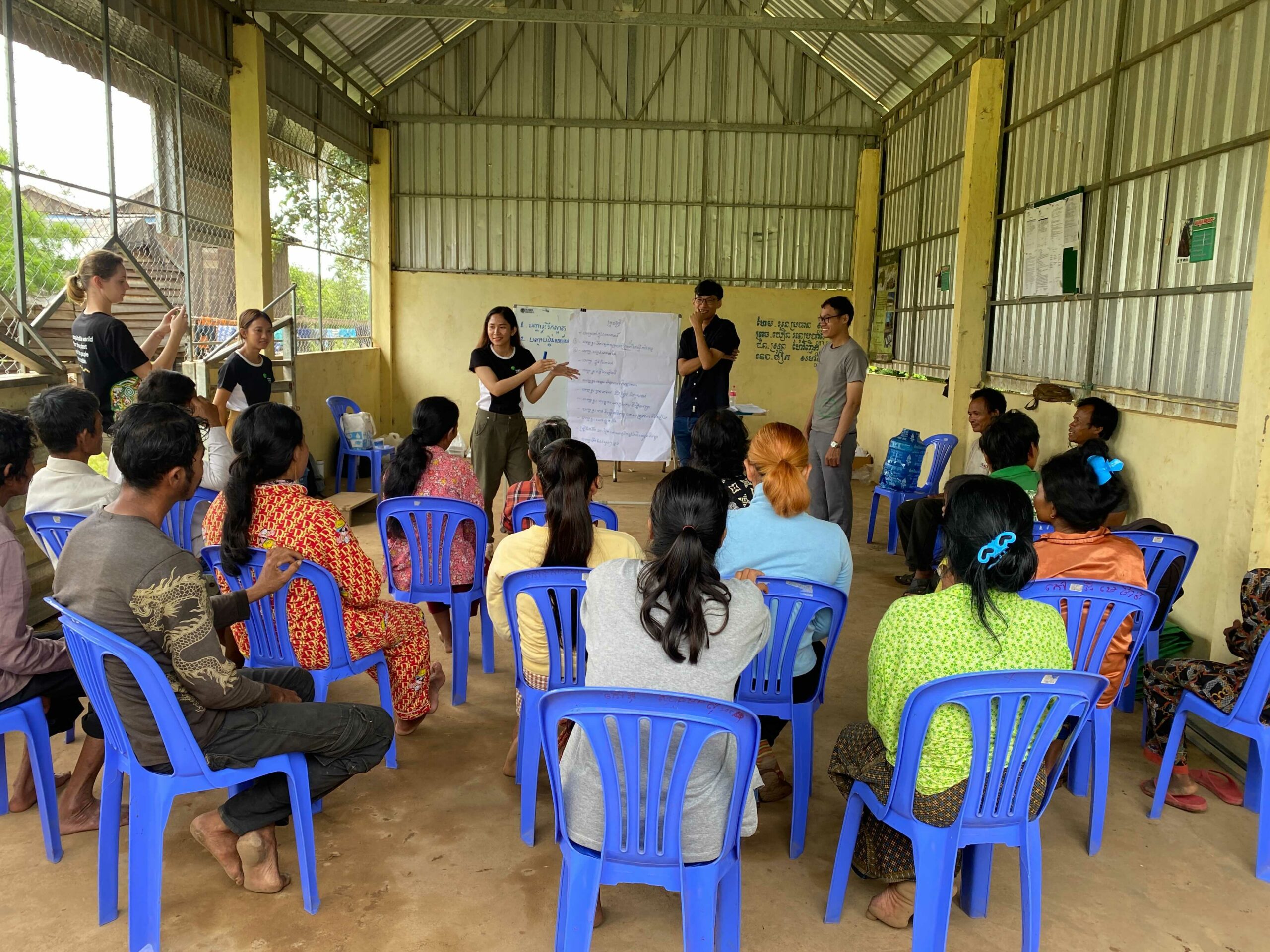
The EWB team facilitating a participatory design workshop in Mondulkiri province, Cambodia. L-R: Grace, Chanrika, Mariny, Ratha and Hengmeang.
If you’re interested in learning more about EWB Australia’s Technology Development Approach and how we utilise Human-Centred Design, read more here.
EWB Australia’s work overseas receives support from the Australian Government through the Australian NGO Cooperation Program (ANCP). You can also donate to support our work.


